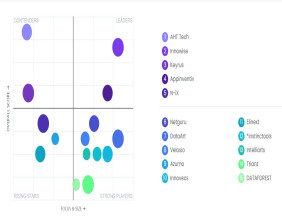Highlights
- AstraZeneca PLC (AZN) conducts a major international trial in early-stage stomach and oesophageal cancers.
- The study evaluates a combination of Imfinzi with conventional chemotherapy.
- Findings reveal a marked extension in periods free from cancer recurrence.
The pharmaceutical industry remains a critical pillar in global healthcare, with oncology at its forefront. Breakthroughs in cancer treatment continue to drive innovations aimed at improving patient outcomes. Companies in this sector strive to integrate novel therapeutic approaches that enhance existing treatment modalities. AstraZeneca PLC (LSE:AZN) is one such leader, advancing research that focuses on combining immunotherapy with standard chemotherapy regimens to combat aggressive forms of cancer.
Overview of the MATTERHORN Trial
AstraZeneca PLC has recently completed a large-scale clinical trial known as MATTERHORN, focusing on early-stage stomach and oesophageal cancers. This international study assessed the efficacy of integrating its immunotherapy drug, Imfinzi, with established chemotherapy treatments. The trial sought to evaluate whether the combined regimen could extend the duration during which patients remain free from cancer progression or recurrence following surgery. The design of the study allowed for a comprehensive examination of treatment effectiveness across diverse patient populations.
Key Findings from the Trial
Results from the MATTERHORN trial have demonstrated that the addition of Imfinzi to conventional chemotherapy has led to extended intervals without cancer recurrence. Patients receiving the combination treatment experienced longer durations of disease-free status compared to those undergoing chemotherapy alone. These findings underscore the therapeutic value of incorporating immunotherapy into standard treatment protocols for patients with early-stage cancers. The study also provided detailed information on the response patterns of patients, which could prove valuable in refining therapeutic strategies in oncology.
Implications for Oncology Treatment
The outcomes of the MATTERHORN trial have significant implications for the field of oncology. By merging immunotherapy with conventional chemotherapy, the treatment regimen has shown the ability to extend the time during which patients remain free of cancer events. This approach offers a new avenue for managing cancers that have traditionally been challenging to treat with surgery and chemotherapy alone. The integration of immunotherapeutic agents into established protocols marks an important evolution in treatment strategies, potentially altering standard care practices for early-stage stomach and oesophageal cancers.
Safety Profile and Patient Outcomes
An essential aspect of the MATTERHORN study was the thorough evaluation of the safety profile associated with the combined treatment regimen. The trial monitored patients closely for adverse effects and recorded that the safety characteristics of the Imfinzi and chemotherapy combination remained consistent with known profiles of the individual treatments. No unexpected side effects were reported, which reinforces the treatment’s viability within current clinical frameworks. The careful documentation of patient responses and tolerability serves as a critical component in validating this innovative approach to cancer therapy.




